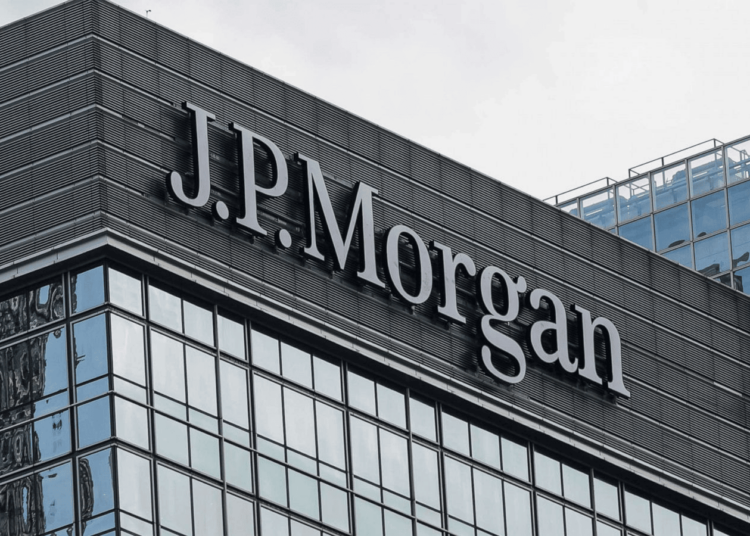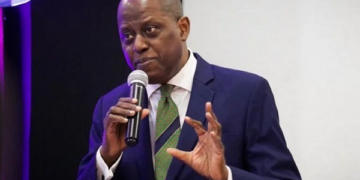The federal government of Nigeria is actively engaging J.P. Morgan in discussions aimed at re-entering the financial institution’s Bond Index for Emerging Markets (GBI-EM), according to director-general of the Debt Management Office (DMO), Patience Oniha.
Oniha confirmed the ongoing talks on Tuesday at the Nigerian Investor Forum, which was held on the sidelines of the International Monetary Fund (IMF) and World Bank Spring Meetings in Washington DC.
“Regarding the JP Morgan Index, investors want us back in,” Oniha stated. “With the reforms implemented, the foreign exchange market has improved, and we’re eligible again. We’ve resumed active engagement with JP Morgan to re-enter the index.”
LEADERSHIP reports that Nigeria was delisted from the GBI-EM in 2015 over concerns about liquidity constraints and lack of transparency in the determination of the exchange rate. The country had initially been added to the index in 2012, but subsequent challenges led to a downgrade and eventual removal on September 8, 2015.
In 2022, J.P. Morgan further removed Nigeria from its list of recommended emerging market sovereigns for overweight investor exposure, citing the country’s inability to leverage high global oil prices effectively.
However, recent reforms in Nigeria’s foreign exchange regime appeared to be restoring investor confidence. Governor of the Central Bank of Nigeria (CBN), Olayemi Cardoso, highlighted the impact of a more market-driven approach to currency valuation.
“I think the important thing for the diaspora and investors outside is that Nigeria now has a competitive naira,” Cardoso said. “That’s a game changer because this hasn’t happened since a few years after independence.”
Cardoso noted that international investors now view Nigeria’s financial market with renewed interest. “They want reassurances on a number of things. They look and they have been consistently looking at the way the market has moved, and they are comfortable that a competitive currency is available that makes business more attractive for them.”
The CBN governor added that the bank’s limited intervention in the foreign exchange market is a strategic move that has boosted market confidence.
“And quite frankly, some things happened around that time. For example, we changed to the B matching system, which made it open and transparent to everybody, so you couldn’t hide any longer,” he said.
He explained that the ‘B’ matching system requires that all FX transactions are displayed publicly, ensuring transparency. This initiative was further reinforced with a code of ethics aimed at promoting accountability and deterring bad actors.
“With the initiative, market players now understand that it is a market that should be protected by everyone,” Cardoso said. “Those with bad behaviour should not be allowed into that market.”
JP Morgan’s GBI-EM is one of the most followed indices for tracking emerging market debt, influencing capital flows and investment decisions worldwide. Nigeria’s potential re-entry could signal a positive shift in its financial reputation and enhance its attractiveness to foreign investors.





